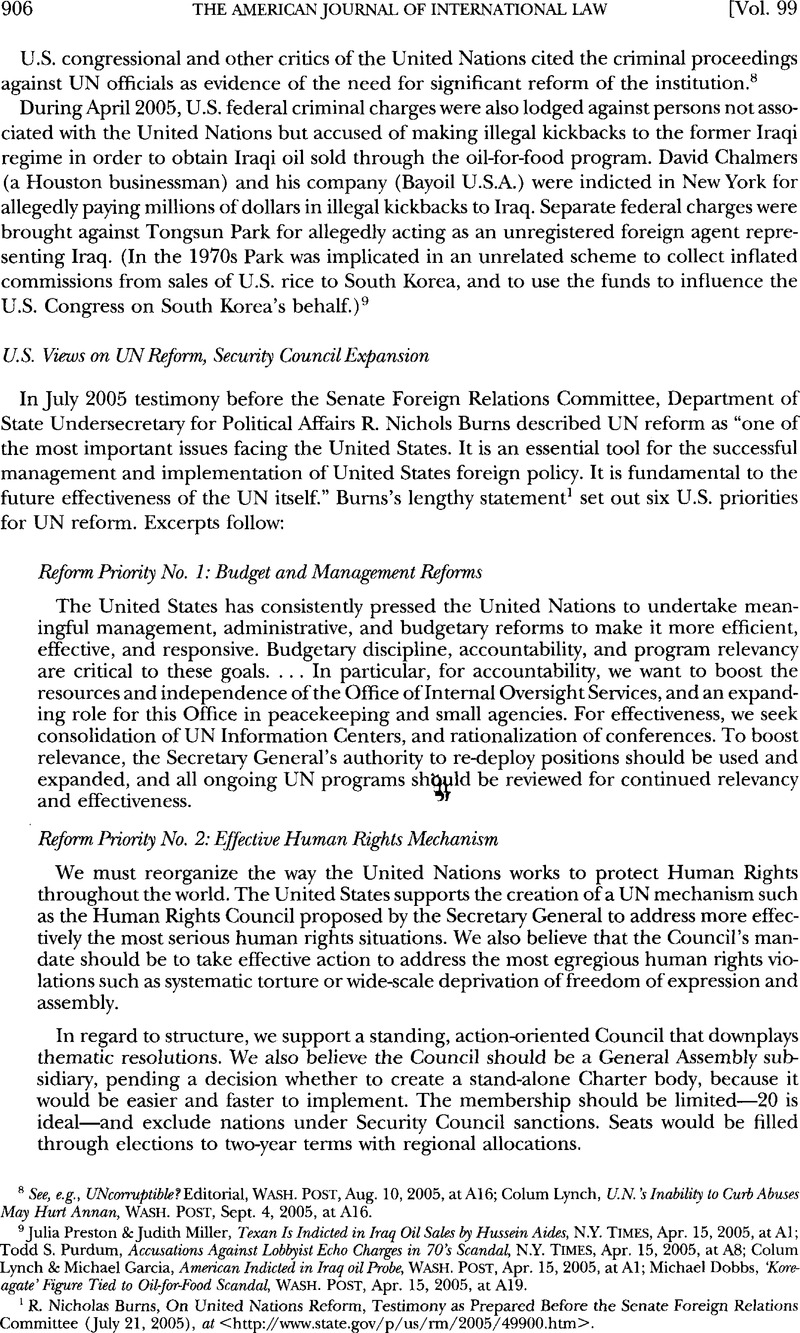No CrossRef data available.
Article contents
U.S. Views on UN Reform, Security Council Expansion
Published online by Cambridge University Press: 10 March 2017
Abstract

- Type
- Contemporary Practice of the United States Relating to International Law
- Information
- Copyright
- Copyright © American Society of International Law 2005
References
1 R. Nicholas, Burns, On United Nations Reform, Testimony as Prepared Before the Senate Foreign Relations Committee (July 21, 2005), at <http://www.state.gov/p/us/rm/2005/49900.htm>>Google Scholar.
2 [Editor’s Note: During the summer of 2005, four countries—Brazil, Germany, India, and Japan—mounted a joint diplomatic effort to gain additional permanent seats on the Security Council. This effort encountered strong resistance by China, the United States, African states, and other major regional powers. Two other plans—one developed by regional rivals of the G-4 countries, and another by African countries—were also in play. In the end, General Assembly action on the competing proposals was deferred. Curb Your Enthusiasm, Economist. June 11, 2005, at 30 Google Scholar; Hoge, Warren, Plans to Expand Security Council May Be Frustrated for Now, N.Y. Times, July 17, 2005, at A4 Google Scholar; 4 Countries Delay Pursuing New U.N. Pole, N.Y. Times July 18, 2005, at A6 Google Scholar; Annan Acknowledges Delays in Council Reform, N.Y. Times, Aug. 11, 2005, at A8.Google Scholar Under Secretary Burns noted congressional factors bearing on U.S. policy regarding Security Council enlargement: “[I]f there’s to be an expansion of the Security Council, the U.S. Senate will have to ratify the amended UN Charter or else it would not take place. Because we’re a P-5 country, it’s very clear to us that the Senate would not now want to entertain any expansion of the Security Council absent the larger reforms that have to be made.” U.S. Dep’t of State Press Briefing No. 2005/715, Briefing on the Signing of the Global Partnership Agreement Between the United States and India (July 19, 2005), at <http://www.state.gov/p/us/rm/2005/49831.htm>.]




